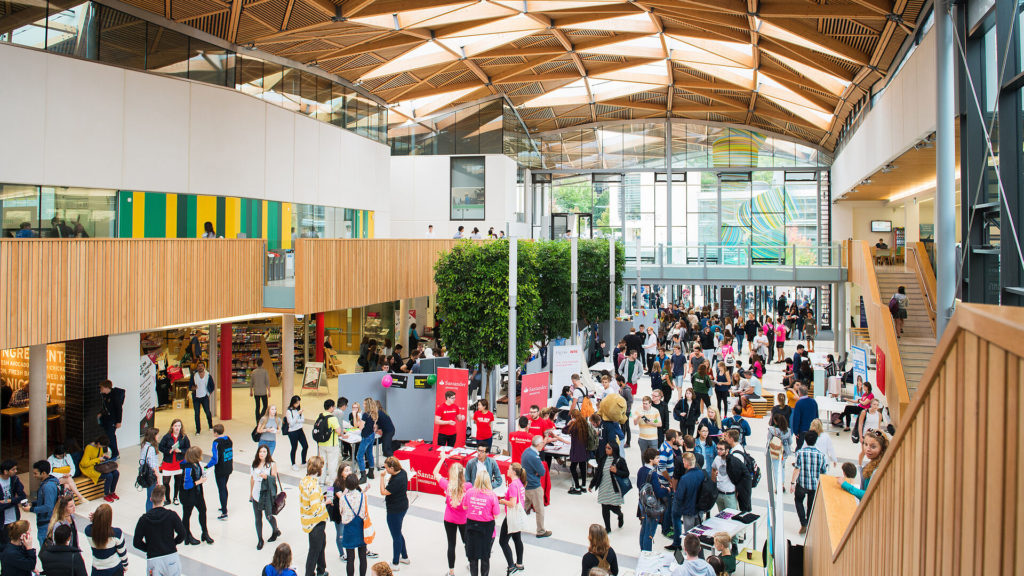Beverley Hawkins, Dean for Taught Students, University of Exeter
An ambitious curriculum transformation programme at the University of Exeter is reimagining the future of undergraduate education. This initiative aims to create a sustainable, cohesive, and distinctive curriculum that benefits our entire university community.

“Our strategic commitment is to develop a distinctive, sustainable and inclusive undergraduate curriculum that is highly attractive to current and prospective students, both home and international. This is ambitious, institutional-level change”
Why Curriculum Transformation and Why Now?
The world is evolving rapidly, and so too must the way we educate. This programme is our response to the growing need for a curriculum that not only delivers academic excellence but also equips students with the skills, mindsets, and experiences they need to thrive in an increasingly complex and interconnected world. By redesigning our undergraduate programmes and modules, we are ensuring that Exeter remains at the forefront of innovative, inclusive, and future-focused education, and creates highly skilled, resilient graduates equipped to lead change.
A New Approach to Design and Delivery
At the heart of our work is a commitment to inclusive, high-quality teaching and learning at the University of Exeter. We are streamlining our modules, assessments, and delivery formats to create a more coherent and efficient academic experience. This includes:
- Inclusive learning that supports diverse student needs and backgrounds.
- Authentic assessment and feedback that reflect real-world challenges and provide meaningful opportunities for growth.
- Skills- and research-oriented teaching that connects students with cutting-edge knowledge and practical applications.
- Efficient delivery that enhances the clarity and purpose of each module.
This redesign is not just about improving what we teach, but how we teach—ensuring that every student has the opportunity to succeed and every member of staff has the space to innovate.
Embedding Skills and Future-Positive Mindsets
A key pillar is the integration of a new skills framework. This framework maps essential skills and behaviours across programmes and modules, helping students to develop the capabilities they need for life beyond university.
To support this, we are exploring how to help students track their skill development and reflect on their progress. This reflective practice encourages a deeper understanding of personal growth and career readiness.
In addition, we are expanding our curriculum with a curated selection of future-skills-focused elective pathways. These are designed to enhance employability and provide students across all programmes with flexible, relevant learning opportunities that align with emerging industry needs.
Prioritising Wellbeing in Higher Education
Exeter recognises that academic success is closely linked to wellbeing. That’s why we are exploring how to smooth out the accumulation of credit, and spread teaching and assessment across our three terms. This approach reduces pressure on both students and staff, creating a more balanced and manageable workload.
We are also introducing new immersive content for first-year students. These activities are designed to help students build networks, develop problem-solving skills, and foster a future-positive mindset from the very beginning of their university journey. It’s about setting the tone for a successful and fulfilling academic experience.
Benefits for All
Beyond curriculum redesign, the transformation programme represents a strategic investment in the future of the University of Exeter. The benefits are wide-reaching:
- For students, we want to offer a more inclusive, engaging, and supportive learning environment. With a stronger focus on skills, wellbeing, and employability, students are better prepared for life after graduation.
- For staff, a streamlined curriculum and assessment model to create space for innovation, research, and professional growth. It also supports a more sustainable workload and greater opportunities for collaboration.
- For the university, we are aligning our programmes with market needs and strategic goals, enhances our reputation, and strengthens our performance in key metrics such as the TEF, NSS, and PTES.
Looking Ahead
This is a bold step forward for the University of Exeter. It reflects our values, our commitment to excellence, and our belief in the transformative power of education. We are continuing to refine this programme as we move forward, to maximise the benefits it offers for students, colleagues and graduates.
